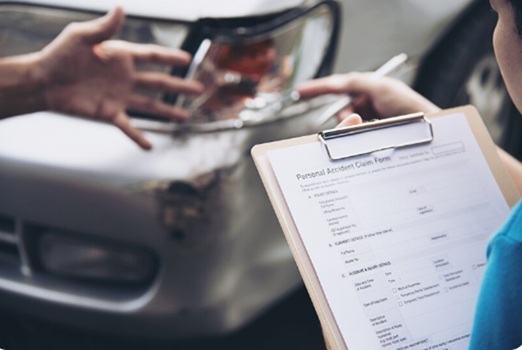If you’ve been hurt in an accident—whether it’s a car crash, slip and fall, or some other unexpected injury—your first priority should always be your health. But once you’ve gotten medical help, the next step is just as important: documentation. How you record and organize the details of your injury can have a major impact on the strength of your personal injury claim. In some cases, solid documentation can mean the difference between a fair settlement and a denied claim.
Here’s how to do it right.
1. Get Medical Attention Immediately
Even if you think your injury is minor, go see a doctor. Not only is this important for your health, but it also creates the first official record of your injury.
Insurance companies and courts tend to look closely at the timeline of when you sought treatment. The longer you wait, the easier it is for others to argue that your injury wasn’t serious—or wasn’t even related to the accident. A same-day visit to the emergency room, urgent care, or your primary care physician sends a clear message that your injury was serious enough to require immediate attention.
2. Keep a Personal Injury Journal
A written or digital journal can be one of the most powerful pieces of evidence in a personal injury case. Start by recording the details of the incident:
- What happened?
- Where did it happen?
- Who was involved?
- What did you feel or notice right away?
Then, continue documenting your experience in the days and weeks that follow. This includes:
- Pain levels (daily or weekly)
- Emotional distress
- Trouble sleeping
- Missed work or activities
- Appointments and treatments
Over time, memory fades. A journal helps keep the details fresh and provides a real-time account of how the injury affected your life.
3. Save All Medical Records and Bills
Hold on to everything related to your treatment—x-rays, prescriptions, doctor’s notes, physical therapy reports, even appointment reminders. Each of these documents helps paint a complete picture of your recovery process.
Don’t forget about bills and receipts. These include hospital charges, medication costs, transportation expenses for doctor visits, and any out-of-pocket costs related to your injury. The more detailed your records, the stronger your case becomes when calculating damages.
4. Take Photographs (Early and Often)
Visual evidence is incredibly persuasive. If possible, take clear photos of:
- Your injuries (bruises, cuts, swelling, casts, etc.)
- The accident scene (damaged vehicles, wet floors, broken stairs, etc.)
- Any safety hazards or conditions that contributed to the accident
Be sure to take photos as soon as possible, and then continue documenting your injury as it heals. This shows not only the extent of the injury but also the recovery process—and can help others understand the pain and impact over time.
5. Get Contact Information for Witnesses
If anyone saw the accident happen, ask for their name and contact information. Eyewitnesses can offer valuable third-party accounts that support your version of events.
It’s also helpful to write down your own recollection while it’s still fresh. Note what you saw, heard, and felt during the incident. Did someone apologize? Did anyone admit fault? These details might be harder to remember later.
6. Keep Records of Missed Work and Lost Income
Injuries can often impact your ability to work. Save all documents that show missed days, reduced hours, or lost wages due to the injury. This could include pay stubs, letters from your employer, or timesheets. If your injury affects your long-term earning potential, make a note of that too.
Final Thoughts
A strong personal injury case isn’t just about what happened—it’s about how well you can prove it. The better your documentation, the easier it is to show the true impact of your injury on your life. Being organized, consistent, and thorough might feel like extra work now, but it can pay off in a big way later. Start early, track everything, and give yourself the best chance to receive the compensation you truly deserve.
This post was written by a professional at Jeanette Secor, PA Attorney At Law.
For over 20 years, the law office of Jeanette Secor, PA in St. Petersburg, FL, has been the go-to choice for those seeking justice after an injury. Renowned as st petersburg fl personal injury lawyer, Jeanette Secor has a proven track record of successfully representing clients in car accidents, motorcycle accidents, and slip-and-fall incidents.











Comments